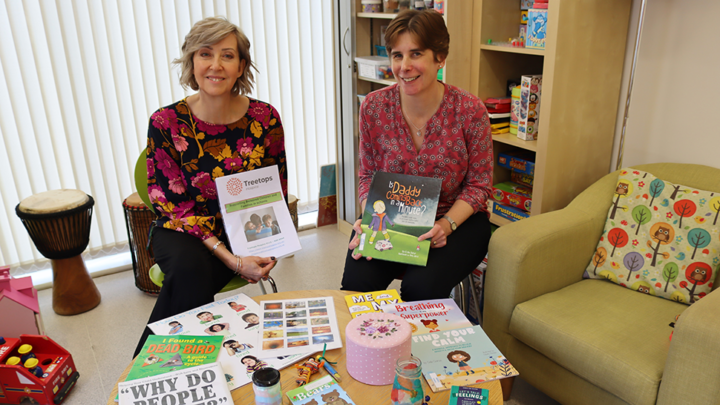The training takes place on Wednesday 3 May. It aims to upskill school staff to understand how children comprehend death at different ages, and what helps children and families deal with a significant loss.
Training topics include how to recognise common emotional and behavioural reactions to a bereavement, the appropriate language to use with children of differing ages, and grief models.
Supporting children after any trauma is vital
Treetops Therapeutic Services Manager, Jules Kirk, explained more:
“Schools play an important part in every child’s life and in supporting the key events that affect their lives. Supporting children after any trauma, including the death of a loved one, is vital.

Our training gives staff the skills, tools and confidence in how to tackle these difficult situations and support distressed children in a safe and appropriate way.
Highly recommend the training
Staff from Hallam Fields Junior School in Ilkeston attended the training earlier this year.
Sarah Carr, Assistant Head, explained how ‘invaluable’ the training was:
“Sadly, we have seen an increase in the number of pupils who have experienced significant loss in recent years and we work closely with these families to support them in any way that we can.
“This training ensures all our staff feel confident and empowered to give the right care and attention to our bereaved children on their return to school and offer the right on-going support.
“We also have some fantastic resources to use in support sessions as well as assemblies. I would highly recommend the training to other schools.”
How children understand death
All children respond to, and understand death, in their own unique way, continues Jules.How a child experiences grief depends on many factors, not just their age. Their reactions can be affected by their cognitive ability, emotional literacy, wider family and social dynamics, and their culture and beliefs.
“In our training, we explain what children believe about death at different ages. Younger children have a limited concept of time, for example, so they often view death as a temporary absence of that loved one. Older children understand that death is irreversible but sometimes believe that the person who died can still see or hear them.
“We also suggest ways in which the wider school can help, such as what policies a school may benefit from.”
Our bereavement training is taking place on Wednesday 3 May at the hospice in Risley.
